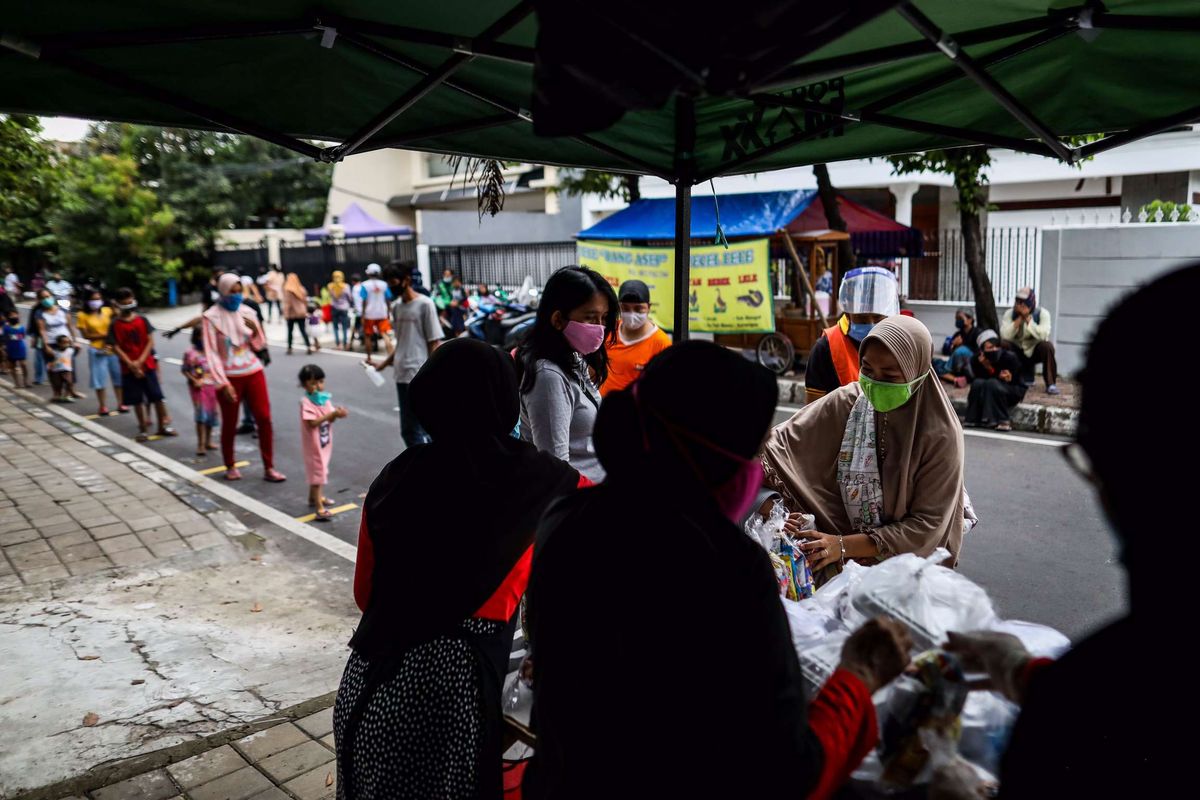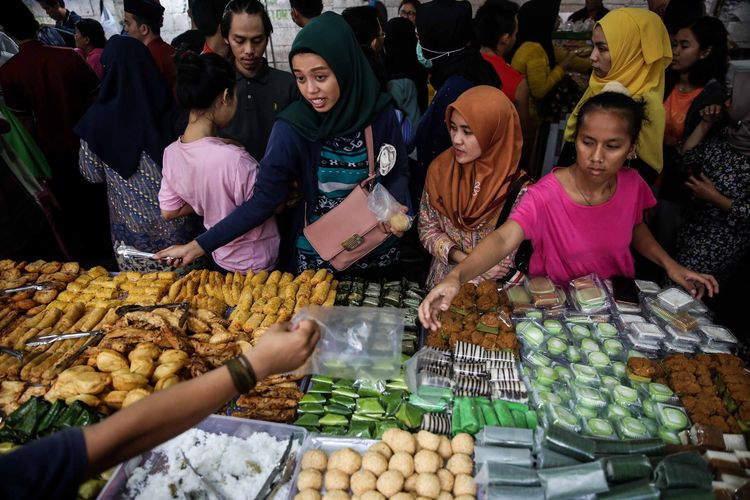Ngabuburit, An Indonesian Ramadan Tradition

JAKARTA, KOMPAS.com - For devout Muslims throughout Indonesia, the holy month of Ramadan is believed to be a time of redemption when the gates of heaven are wide open, and divine rewards for good deeds now are more abundant than at any other time of year.
Unsurprisingly, they look forward to this time of year, not least when the Ministry of Religious Affairs declared in a meeting Monday that Ramadan, 1442 Hijriah, would fall the next day on Tuesday, April 13.
This year is no different, even as millions of Muslims throughout Indonesia continue to deal with Covid-19 and the pandemic's disruptive effects on various aspects of their lives. These range from their livelihood and how they interact with their friends and loved ones.
Also read: Indonesia Islamic Council Issues Edict on Iftar Together During Ramadan
Among the traditions that might be affected by the coronavirus include Ngabuburit, one of many Indonesian Ramadan customs this time of year.
Held as one waits for the day's fast to end at dusk, Ngabuburit is a portmanteau of the Sundanese phrase "Ngalantung Ngadagoan Burit", which means to relax while waiting for dusk.
Over time, Ngabuburit has become a tradition in Indonesia to describe activities carried out to seek diversions to distract from hunger and thirst.
 Customers wait to buy fast breaking fare at Benhil traditional market
Customers wait to buy fast breaking fare at Benhil traditional marketNgabuburit is usually spent by hunting food for fast-breaking, also known as ta'jil, social activities, or just hanging around with relatives and friends.
A number of favorite spots for ngabuburit in Jakarta include Ancol Beach, Sunter Lake, Pluit reservoir, and the now-defunct Teiuk Gong cinema. Other popular ngabuburit venues include traditional markets known for their fastbreaking fare.
Also read: Indonesia Will Begin Holy Fasting Month of Ramadan April 13
These include the Benhil and Santa traditional markets, as well as impromptu markets that emerge near the Sunda Kelapa mosque in Central Jakarta and the Jalan Panjang thoroughfare straddling South and West Jakarta
Social distancing and other health protocols might change ngabuburit as the public knows it, forcing them to adjust. The Jakarta Provincial Government has urged people to implement health protocols as they go about ngabuburit, so as to minimize the spread of Covid-19.
(Writer/Editors: Rindi Nuris Velarosdela, Theresia Ruth Simanjuntak)
Source:
Simak breaking news dan berita pilihan kami langsung di ponselmu. Pilih saluran andalanmu akses berita Kompas.com WhatsApp Channel : https://www.whatsapp.com/channel/0029VaFPbedBPzjZrk13HO3D. Pastikan kamu sudah install aplikasi WhatsApp ya.- ngabuburit
- ramadan indonesia 2021
- ramadan festival in indonesia
- indonesia during ramadan
- ramadan 2021 jakarta
- first day of ramadan 2021
- fasting ramadan tradition
- Ngabuburit during ramadan
- Indonesia tradition during fasting
- ramadan indonesia date
- ramadan indonesia holiday
- ramadan indonesia calendar
- indonesia during ramadan
- ramadan insights indonesia
- ramadan in indonesia 2021
- ramadan festivities in indonesia
- indonesia ramadan traditions






























